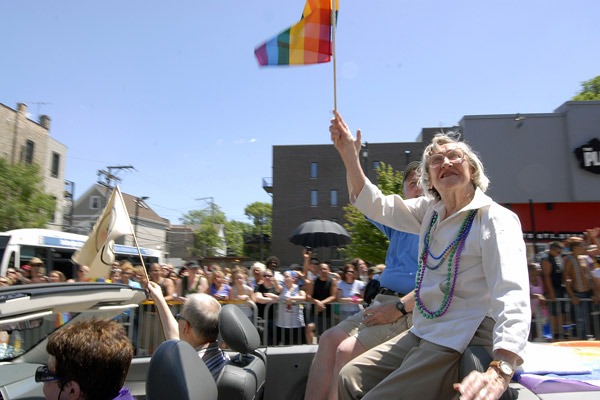
Photograph: Chicago Tribune
The tributes are rolling out for Dawn Clark Netsch, who did a little bit of everything in Illinois politics. She's perhaps best known for her unsuccessful gubernatorial candidacy—the first female major-party candidate in the state for that office, as my colleague Carol Felsenthal writes—but she also clerked for Julius Hoffmann (the judge of Chicago Seven fame), served as an aide in Adlai Stevenson's presidential campaign, worked as the chief research assistant to Otto Kerner, served in the state senate, as a delegate to the Illinois Constitutional Convention, and as the state's comptroller during her remarkable career.
(For a full, excellent biography, Ben Joravsky profiled her as she moved from comptroller to gubernatorial candidate; the parts about the state's finances and taxes should sound familiar.)
Greg Hinz, in his obituary, writes that "she's a hero when Chicago and American politics has almost none of them." In Netsch, the state didn't just lose an idealist and wonk who continued to advocate for political change after moving to academia (at her alma mater, Northwestern Law); it lost a veteran pol with a bird's-eye view of city and state politics. Fortunately, a couple years ago the Chicago History Museum recorded Netsch's oral history as part of their Chicago Politics Oral History project. The first three parts are below; the following six can be found at the CHM's lengthy library of subjects on YouTube.


